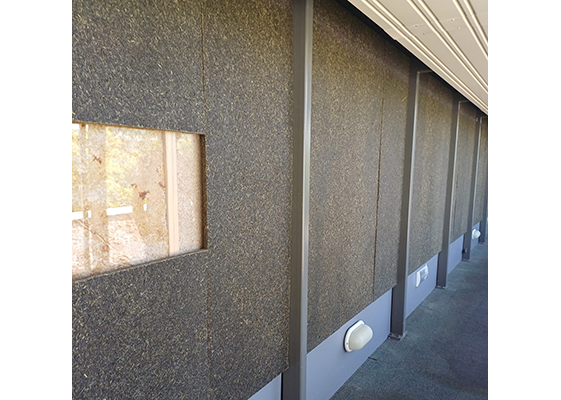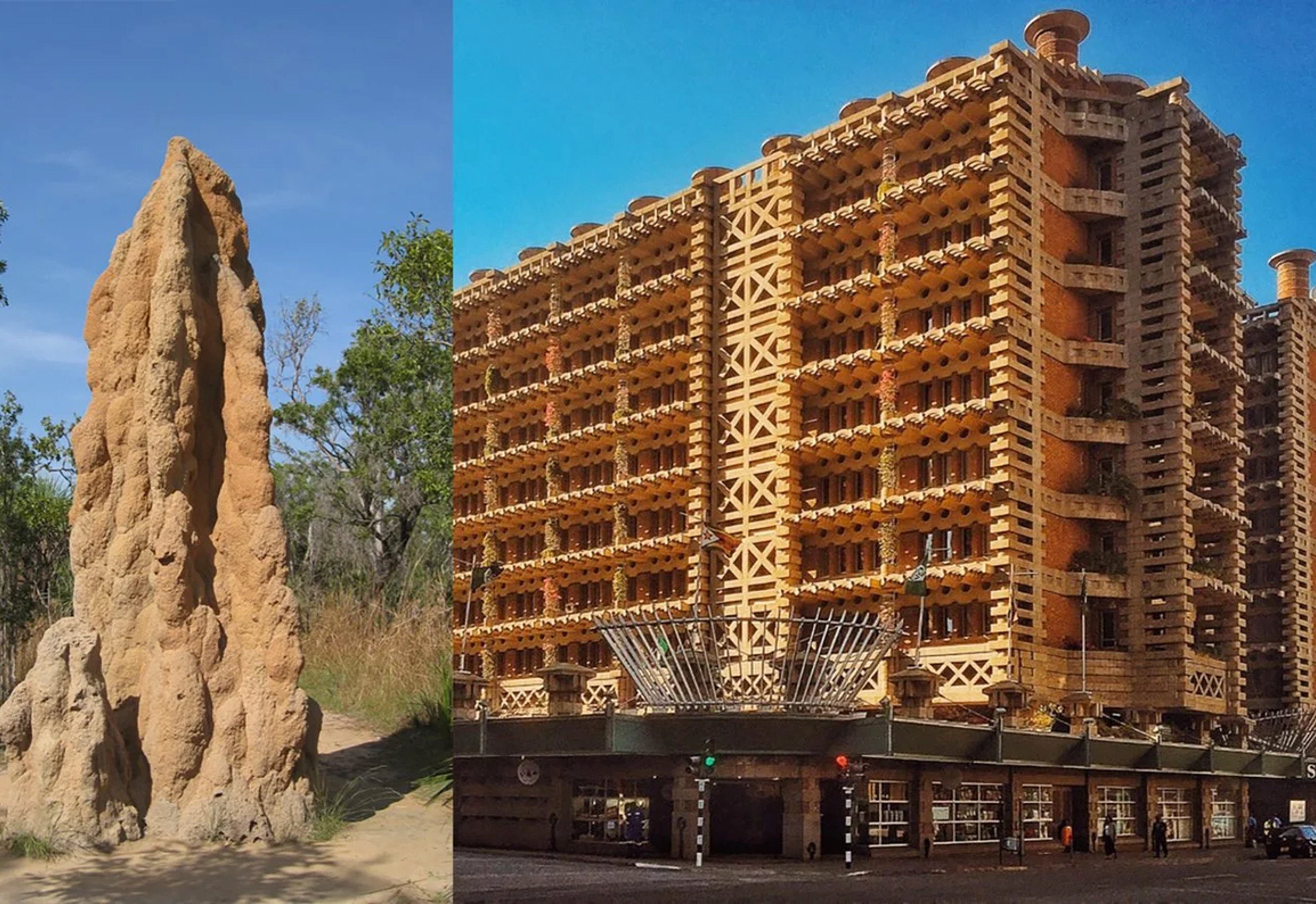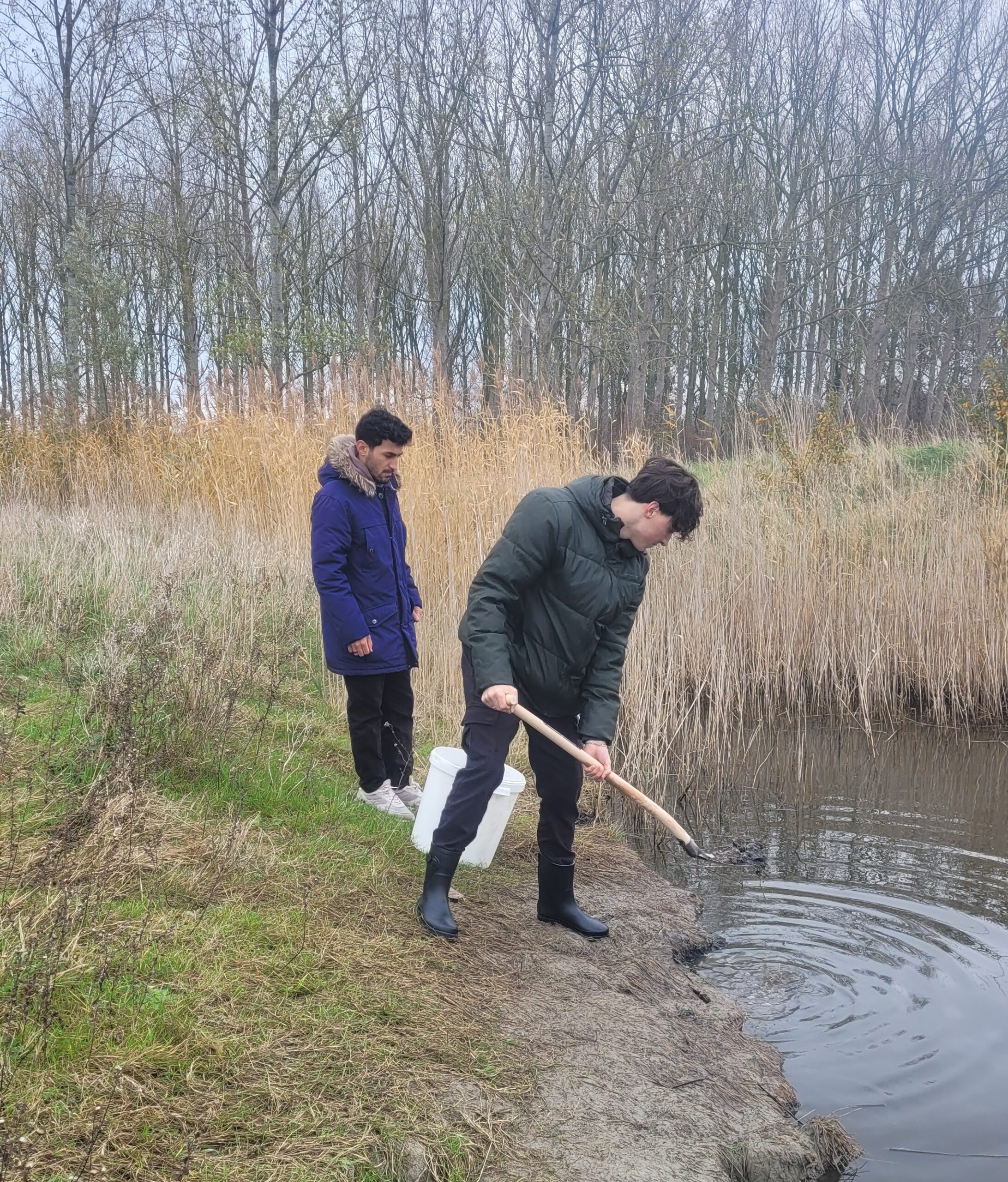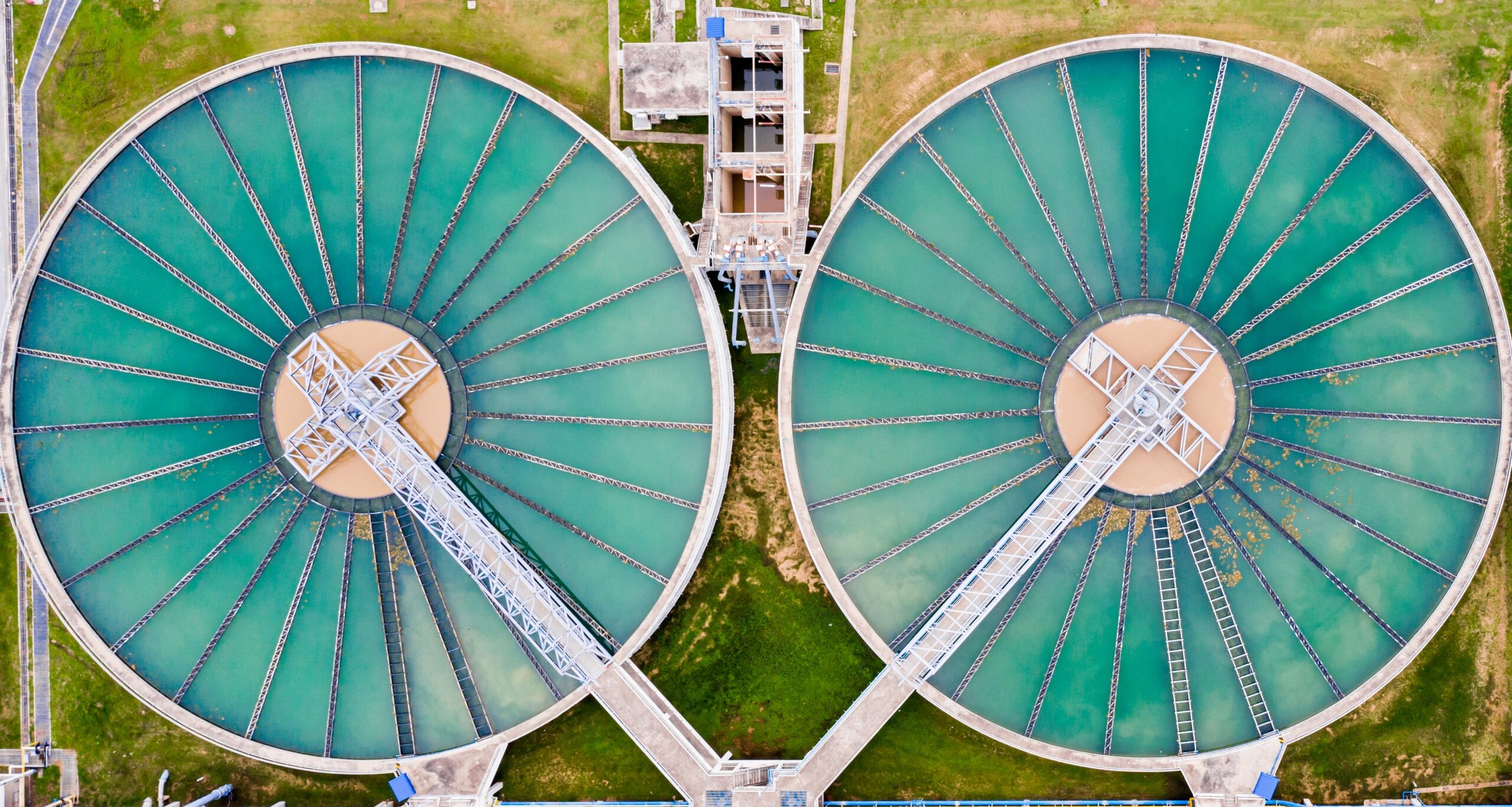On sunny days, temperatures in two connecting corridors of Water Authority De Dommel rise above 50 °C. Direct sunlight through the glass façades creates a greenhouse effect, leading to damage to the glass panels and an uncomfortable indoor climate. Together with multiple partners, an innovative, fully biobased wall is now being installed.
For MNEXT, this project marks an important step in putting years of research into mycelium biocomposites as insulation material into practice. It offers a unique opportunity to test the performance of these innovative, sustainable materials under real-life conditions, providing crucial knowledge for scaling up and broader adoption in the construction sector.
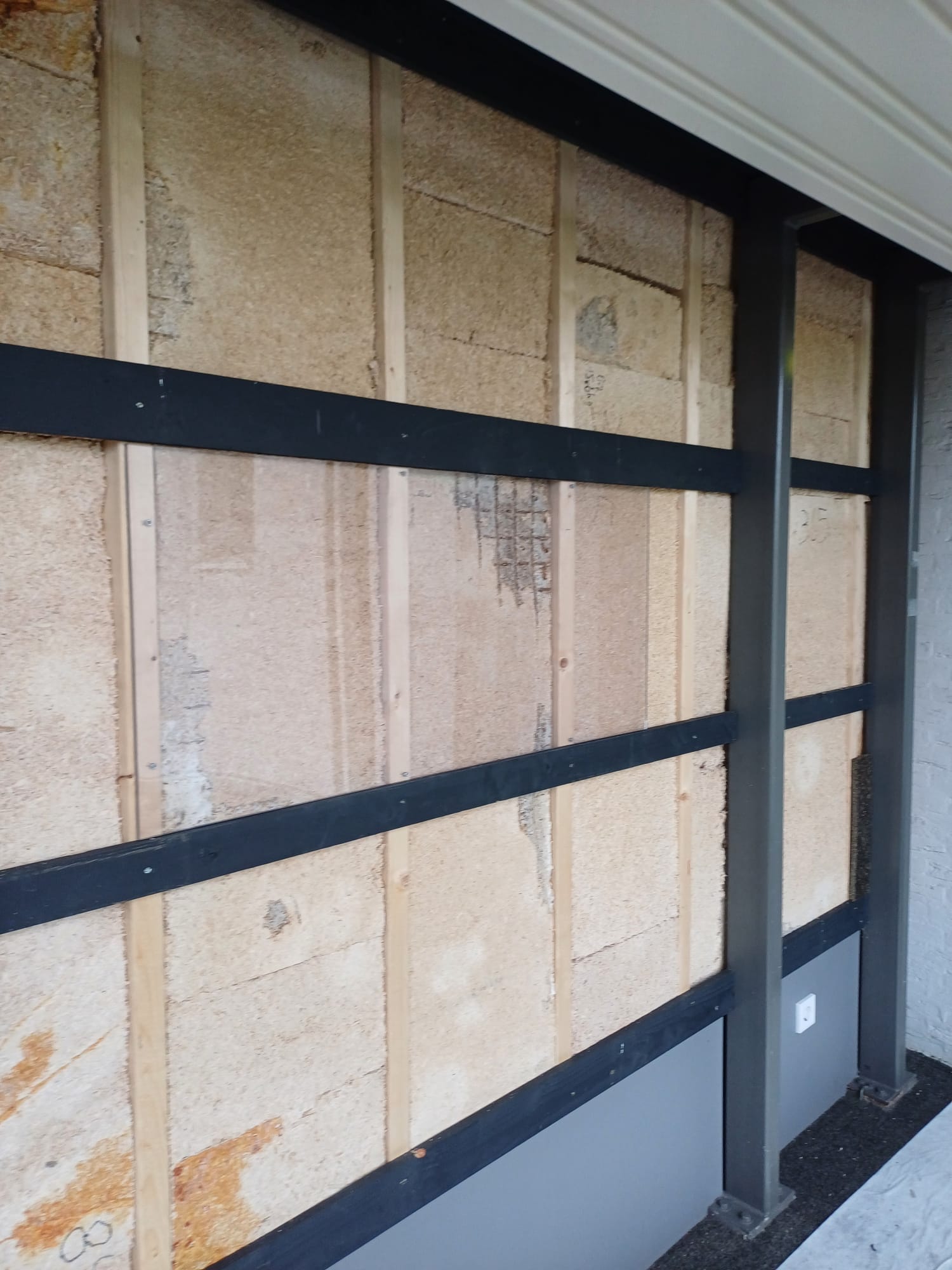
A first in permanent application
The new wall consists of multiple layers of sustainable materials: an outer layer of solar panels, wood fiber boards, a vapor barrier membrane, a wooden frame filled with mycelium insulation, and an interior finish of clay plaster or compost board.
This is the first time that mycelium biocomposites are being used as insulation in a permanent structure, making the project an important milestone in scaling up biobased construction.
MNEXT monitors real-world performance
MNEXT is responsible for designing and conducting the research program, focusing on monitoring the wall’s performance: how well does it regulate heat, moisture, and indoor air quality?
Sensors are being installed to measure temperature trends, humidity, condensation, and indoor air quality. This includes parameters such as CO₂, VOCs, particulate matter, and allergens. The biological stability of the mycelium insulation will also be studied: does the material remain structurally sound, is there mold growth, and how does it behave within the timber frame?
The measurements will provide valuable data for MNEXT’s research into biobased insulation and healthy indoor climates, supported by the Centre of Expertise Perspectief in Gezondheid (CoE PG) at Avans University of Applied Sciences. CoE PG helps interpret the air quality measurements and assess potential health effects, aligning with the “One Health” principle that connects human, animal, and environmental health and underlines the importance of sustainable, healthy building materials.
Education joins practice-based research
In addition to research, education at Avans University of Applied Sciences is actively involved. Architecture students participate through a minor project, and graduating students from Architecture and Chemistry contribute to data collection, analysis, and air quality measurements. This creates a strong synergy between practice-based research and education.
Foundation for future biobased building
The results of this project will provide all partners with valuable insights. The wall serves as a test environment where sustainable materials, design principles, and measurement methods come together, offering concrete lessons for future applications. For MNEXT, it means a faster path to validating biobased solutions under real conditions. The knowledge gained contributes to further innovations, new collaborations, and the broader scaling of biobased construction in the Netherlands.
The mycelium research within this project is funded by the Pre-Seed Fund of Avans University of Applied Sciences, which supports small-scale, multidisciplinary research projects and thus lays the foundation for larger collaborations and innovations.




